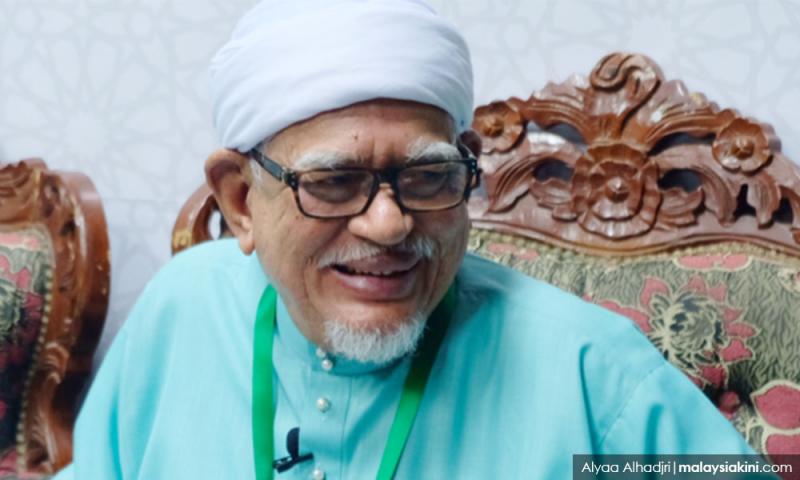Hadi: When Umno is pinched, PAS feels pain and vice versa
PAS president Abdul Hadi Awang has highlighted Umno and his party's intertwined history, stating that when either is "pinched" the other would feel the pain.
"Umno and PAS are like the left thigh and right thigh. When the right is pinched, the left feels pain and when the left is pinched, the right feels pain," he told a dinner event with Pahang Menteri Besar Wan Rosdy Wan Ismail at Wisma Belia Indera Mahkota in Kuantan last night.
The dinner event was in conjunction with PAS organising its annual muktamar (assembly) in the Umno-led state.
Hadi said the practice of PAS and Umno hosting each other had dated back to the colonial era.
He pointed out that when Hizbul Muslimin and Sarekat Islam - the early predecessors to PAS - were outlawed by the British, many of their leaders joined Umno.
He added that later, even though the two parties split from Umno to form PAS in 1951, they joined hands again when Islam and race "were challenged".
An example, he said, was PAS joining the BN after the 1969 riots. PAS quit BN in 1978.
Hadi said even when members of either party were sacked, they would then gravitate to the other party.
"I still remember during that tense period: (Dr) Mahathir (Mohamad) was sacked by Tunku (Abdul Rahman) and he had no place to speak, so he spoke on PAS' stage.
"Such was the case: when Umno members are sacked, they come to PAS and when PAS members are sacked, they go to Umno," he said.
Hadi claimed that the country now faces a challenge as the current situation "does not favour Muslims".
"The general election had just concluded and there was a change in politics, the government is dominated by non-Muslims and there are many instances of Muslims being challenged... This requires us to make a change.
"We need to be united. If we can unite over lesser issues in the past, in the face of a serious challenge, we must face it as one," he said.
Reporting by Alyaa Alhadjri, Al-Abror Mohd Yusof, N Faizal Ghazali, M Fakhrull Halim and Lu Wei Hoong.
RM12.50 / month
- Unlimited access to award-winning journalism
- Comment and share your opinions on all our articles
- Gift interesting stories to your friends
- Tax deductable
